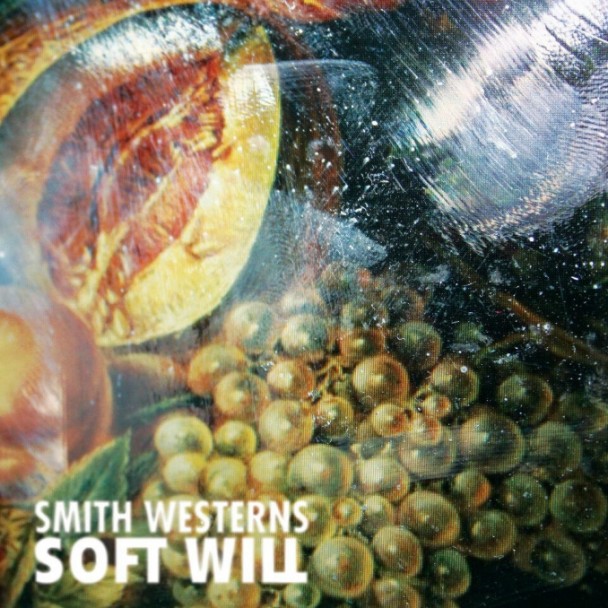In the mid-'60s, when garage rock was first starting to be a thing, bands weren't trying to play garage rock. They were trying to be the Beatles, or (more often) the Rolling Stones. But their sloppy approximations had their own headlong charm, and years later, when Lenny Kaye assembled the first Nuggets compilation, they were retroactively grouped together, considered an exciting movement in hindsight. They were only really garage rock by dint of their own smallness and sloppiness, but plenty of these bands came up with amazing songs anyway. (A few of them even moved beyond the genre, like the Electric Prunes, who started out as an especially wiggy psych-rock band before hooking up with jazz-funk composer David Axelrod and making some real transcendent weirdness.) That combination of inspiration and limitation mostly doesn't happen in garage rock anymore; bands fetishize and attempt to recreate the sloppy rush of the bands that were trying to be something else. But Chicago's Smith Westerns, barely out of high school when they made their first album, actually were trying to be something else. On their self-titled debut, you could hear that they wanted to be hair-flipping T. Rex glam stars; it's just that they were recording quickly and cheaply and hadn't yet figured out how to be the band they wanted to be. Now, three albums in, they've pretty much become what they wanted to be, and there's not one iota of garage rock in their sound. And as someone who really liked that first record, it almost pains me to say this, but they're better now than they were.
They'd already been going down this road. Dye It Blonde, the band's 2011 sophomore album, streamlined and slickened the preening stomp of that first album, turning it into the type of rip-snorting singalongs that could've, in a simpler age, gotten some serious modern-rock radio burn. But Soft Will is so far removed from that stuff that it's practically not a rock album. If the current-day Smith Westerns remind me of any past rock subgenre, it's the middle tier of mid-'90s Britpop: Space, James, Ocean Colour Scene, Longpigs, maybe the Verve. Those bands didn't blaze trails like Blur or overwhelm soccer stadiums like Oasis or automatically stand as the smartest guys in the room like Pulp. They sure as hell didn't turn into Radiohead. But these bands were, by and large, pretty great: Hooks for days, saucy insouciance, sneakily murderous songcraft, a quiet embrace of state-of-the-art electronic production, more sense of style than anyone gave them credit for. In the pre-Coachella days when the only real American music festivals were haphazardly curated radio-station stadium shows (give or take a Tibetan Freedom Concert or whatever), these bands were wrecking shit in front of vast European crowds. In 1997, I saw Space -- a total nonfactor in America, mostly just known for the minor alt-rock radio hit "The Female Of The Species" -- play in the middle of the day at the Reading Festival and just absolutely destroy. I'm confident that, if you loaded the-present day Smith Westerns into a time machine and sent them back in a time machine, they could pull off something similar. And now we have those festivals in America, so we get to see them do that without having to jump on a plane.
There's something not altogether serious about Soft Will. The production, from Yeah Yeah Yeahs/Beach House collaborator Chris Coady, is so smooth that sounds melt into each other, and it's hard to tell if what you're hearing is a synth or a guitar sometimes. Frontman Cullen Omori is so full of doe-eyed vulnerability that you figure it must be a put-on, the way he switches from conversationally hiccuped verses to falsetto-keening choruses so casually. The guitars jangle and soar and drizzle honey without ever attempting to jam out the sort of nut-grab riff that was once the band's stock in trade -- or, if they do crank out any of those riffs, they hide it in so many layers of woozy sound that you almost don't notice when nuts are being grabbed.
Soft Will is a fun, small-stakes, hair-blowing-in-wind sort of album, but it's so melodically packed, so full of sharp little production touches, that I'm still hearing new details a few weeks after playing it for the first time. These songs would work really well as no-frills acoustic deals, but if we heard them that way, we'd miss the delicate Southern rock guitar-leads during the great extended "whoooaaa yeah!" coda on "3am Spiritual," or the way Omori's massed, multitracked voice surges upward on the "Best Friend" chorus. On the album-closing "Varsity," maybe the best song here, Omori summons a chorus so meaninglessly grand and triumphant that it practically demands full-field singalongs: "Cuz I know it's hard to be alone / Count the days, count the nights, but don't get by." And Omori's voice is almost so small and conversational that the smart melodic decisions he makes -- the extra sigh on "the nights" -- drive that hook home so much harder. Hooks like that might not change your life, but they'll make an afternoon drive a whole hell of a lot more pleasant, and Soft Will is full of them.
Soft Will is out now on Mom + Pop. Stream it here.
[videoembed size="full_width" alignment="center"][/videoembed]
Other albums of note out today:
• Soul/gospel legend Mavis Staples's Jeff Tweedy-produced One True Vine.
• Black Mountain side project Lightning Dust's electro move Fantasy.
• Wise Blood's bedroom-weirdo pop LP id.
• Bass Drum Of Death's fiery, simplistic self-titled garage record.
• Hausu's cathartic post-hardcore debut Total.
• Locrian's foggy, atmospheric black metal experiment Return To Annihilation.
• Pity Sex's blissy, poppy shoegaze debut Feast Of Love.
• Mood Rings' dreamy indie-popper VPI Harmony.
• Amon Amarth's fundamentalist melodic death metal record Deceiver Of The Gods.
• Rancid side project the Transplants' rapcore attack In The Warzone.






